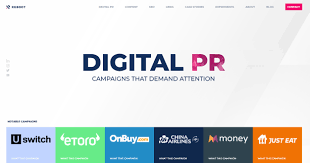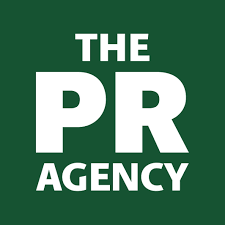Title: The Power Duo: Marketing and Public Relations Agency
Introduction:
In today’s fast-paced and highly competitive business landscape, the success of any company heavily relies on its ability to effectively communicate its message, build brand recognition, and connect with its target audience. This is where the expertise of a marketing and public relations agency becomes invaluable. By combining their skills and knowledge, these agencies form a powerful duo that can propel businesses towards success.
The Role of Marketing:
Marketing is all about understanding consumer behavior, identifying target markets, and crafting strategies to promote products or services effectively. A marketing agency brings a wealth of expertise in market research, branding, advertising, digital marketing, social media management, and more. They work closely with their clients to develop comprehensive marketing plans that align with business objectives.
A marketing agency helps businesses create compelling brand stories that resonate with their target audience. They conduct thorough market research to identify consumer preferences, trends, and competitors’ strategies. Armed with this knowledge, they develop tailored marketing campaigns that effectively position the brand in the market.
Digital marketing has become an essential component of any successful marketing strategy. Marketing agencies excel in leveraging various digital channels such as search engine optimization (SEO), pay-per-click (PPC) advertising, content marketing, email marketing, and social media management to drive brand awareness and generate leads.
The Role of Public Relations:
Public relations (PR) is the art of managing relationships between organizations and their stakeholders. PR agencies specialize in building positive public perception by strategically managing communication between businesses and their target audiences. They focus on enhancing brand reputation through media relations, crisis management, community engagement initiatives, events coordination, influencer partnerships, and more.
PR agencies understand the importance of storytelling in shaping public opinion. They craft compelling narratives that highlight a company’s values, achievements, or social impact to engage consumers on an emotional level. By securing positive media coverage through press releases or thought leadership articles in reputable publications, PR agencies help businesses gain credibility and trust.
In times of crisis, PR agencies play a crucial role in safeguarding a company’s reputation. They provide strategic counsel, develop crisis communication plans, and handle media inquiries effectively. By managing the flow of information during challenging situations, PR agencies help businesses maintain public trust and minimize potential damage.
The Power Duo:
When marketing and public relations agencies collaborate, they create a powerful synergy that maximizes the impact of communication efforts. By aligning marketing strategies with PR initiatives, businesses can ensure consistent messaging across all channels.
Marketing campaigns drive brand awareness and generate leads, while PR activities enhance brand reputation and credibility. When these two disciplines work hand in hand, they create a holistic approach that strengthens brand positioning, fosters customer loyalty, and drives business growth.
Conclusion:
In today’s competitive business landscape, the importance of effective communication cannot be overstated. A marketing and public relations agency partnership offers businesses a comprehensive solution to navigate the complex world of brand promotion. By harnessing their combined expertise in marketing strategies and public perception management, these agencies empower companies to connect with their target audience on a deeper level.
If you’re looking to elevate your brand’s presence and build meaningful relationships with your stakeholders, consider partnering with a marketing and public relations agency. Together, they will help you craft compelling narratives, amplify your message across various channels, and ultimately drive your business towards success in an ever-evolving marketplace.
9 Essential Tips for Marketing and Public Relations Agencies in the UK
- Have a clear strategy for your marketing and public relations agency. Know what services you offer and what makes you stand out from the competition.
- Make sure to stay up-to-date with the latest trends in the industry, so that you can provide the best advice to your clients.
- Develop relationships with key influencers in your industry, as well as journalists and media outlets who can help promote your services.
- Utilise digital marketing techniques such as SEO, PPC and social media to reach more potential customers online.
- Focus on creating high quality content that will engage readers and encourage them to take action (e.g signing up for newsletters or buying products).
- Connect with potential customers through events such as trade shows or networking opportunities, where you can showcase your services face-to-face with potential clients .
- Use customer feedback surveys to get an understanding of how people perceive your brand – this will help inform future campaigns and strategies .
- Monitor competitors’ activities so that you are always one step ahead of them in terms of service offerings and promotions .
- Measure results regularly so that you can track progress over time and ensure that all efforts are being used effectively towards achieving desired outcomes
Have a clear strategy for your marketing and public relations agency. Know what services you offer and what makes you stand out from the competition.
Having a Clear Strategy: The Key to Success for Your Marketing and Public Relations Agency
In the dynamic world of marketing and public relations, having a clear strategy is essential for the success of your agency. It not only helps you define your goals but also enables you to differentiate yourself from the competition. By knowing what services you offer and what makes you stand out, you can effectively position your agency in the market and attract clients who align with your unique strengths.
First and foremost, it is crucial to have a deep understanding of the services your agency provides. Whether it’s comprehensive marketing campaigns, social media management, content creation, crisis communication, media relations, or event coordination – knowing your core offerings is essential. This clarity allows you to communicate your expertise confidently to potential clients.
Next, identify what sets your agency apart from others in the industry. What unique value do you bring to the table? Is it your extensive experience in a particular sector? Your innovative approach to digital marketing? Your ability to craft compelling brand stories? Highlighting these differentiators will help potential clients understand why they should choose your agency over others.
Once you have defined your services and unique selling points, incorporate them into a cohesive strategy that guides all aspects of your business. This strategy should outline how you will attract clients, deliver exceptional results, and continuously improve upon your offerings.
Developing a clear strategy involves conducting thorough market research to identify target markets and understand their needs. By gaining insights into industry trends and competitors’ strategies, you can refine your approach and tailor it to meet client expectations effectively.
Your strategy should also include defining measurable goals that align with both client objectives and business growth. Whether it’s increasing brand awareness for a specific campaign or generating leads through digital channels – setting clear goals allows you to track progress and demonstrate tangible results to clients.
Additionally, ensure that everyone within your agency is aligned with the strategy. From account managers to creative teams, each member should understand the agency’s unique positioning and be equipped to deliver on its promises. This alignment fosters a cohesive and collaborative environment, enabling the agency to operate efficiently and effectively.
In conclusion, having a clear strategy is paramount for the success of your marketing and public relations agency. It enables you to articulate your services, differentiate yourself from competitors, and attract clients who value what you bring to the table. By understanding your unique strengths, conducting market research, setting measurable goals, and fostering internal alignment, you can position your agency for long-term growth and achieve remarkable results for your clients.
Make sure to stay up-to-date with the latest trends in the industry, so that you can provide the best advice to your clients.
Staying Ahead: The Key to Success in Marketing and Public Relations
In the dynamic world of marketing and public relations, staying up-to-date with the latest trends is not just a recommendation; it is an absolute necessity. As a marketing and public relations agency, your ability to provide the best advice to your clients hinges on your knowledge of industry developments and emerging trends.
The landscape of marketing and public relations is constantly evolving. New technologies, platforms, and consumer behaviors emerge regularly, reshaping the way businesses communicate with their target audience. By actively staying informed about these changes, you position yourself as a trusted advisor who can offer valuable insights and innovative strategies.
One of the first steps in staying up-to-date is to immerse yourself in industry publications, blogs, and reputable sources of information. Follow thought leaders in the field, attend conferences or webinars, and engage in networking opportunities with other professionals. These activities allow you to gain firsthand knowledge about the latest trends shaping the industry.
Additionally, keeping a pulse on social media platforms can provide valuable insights into emerging trends. Pay attention to what topics are trending among your target audience, observe how brands are leveraging new features or channels, and stay informed about any algorithm changes or policy updates that may impact your strategies.
By staying ahead of the curve, you can provide your clients with timely advice tailored to their specific needs. Whether it’s incorporating influencer marketing strategies or harnessing the power of video content, being aware of these emerging trends allows you to guide your clients towards innovative approaches that yield effective results.
Moreover, staying up-to-date demonstrates your commitment to excellence. It shows that you value continuous learning and growth as a professional. This commitment not only enhances your credibility but also inspires confidence in your clients that they are working with an agency at the forefront of industry knowledge.
Remember that staying up-to-date is an ongoing process. Set aside dedicated time each week to research new trends and developments. Encourage your team members to share their insights and discoveries, fostering a culture of continuous learning within your agency.
In conclusion, in the fast-paced world of marketing and public relations, staying up-to-date with the latest trends is essential for providing the best advice to your clients. By actively seeking out industry knowledge, you position yourself as a trusted advisor who can offer innovative strategies and solutions. Embrace the ever-changing landscape, adapt to emerging trends, and let your expertise shine through as you guide your clients towards success.
Title: The Power of Relationships: Leveraging Influencers and Media for Marketing Success
In today’s digital age, where information spreads at lightning speed, developing strong relationships with key influencers, journalists, and media outlets has become a crucial aspect of marketing and public relations strategies. These connections can play a significant role in promoting your services and boosting your brand’s visibility.
Key influencers possess the ability to sway consumer opinions and shape trends within their respective industries. By collaborating with these influential individuals, you can tap into their loyal following and gain access to a highly engaged audience. Building relationships with influencers allows you to leverage their credibility and expertise to endorse your services or products organically.
When selecting influencers to partner with, it’s essential to consider their relevance to your industry and target audience. Look for individuals who align with your brand values and have a genuine interest in what you offer. By forging authentic relationships based on mutual trust and shared interests, you can create long-term partnerships that yield meaningful results.
In addition to influencers, establishing connections with journalists and media outlets is equally important. Journalists are always on the lookout for interesting stories and expert insights that resonate with their readership. By nurturing relationships with journalists in your industry, you increase the likelihood of securing media coverage for your services.
Take the time to research relevant journalists who cover topics related to your business niche. Engage with them through social media platforms or attend industry events where they might be present. Building rapport by providing valuable insights or offering yourself as a resource can help establish you as a go-to expert in your field.
Media outlets play a vital role in amplifying your message to a wider audience. Develop relationships with editors or reporters who cover topics relevant to your business by providing them with well-crafted press releases or story pitches that align with their readers’ interests. A positive mention or feature in reputable media outlets can significantly enhance brand credibility and generate valuable exposure.
Remember that building relationships takes time and effort. Be genuine in your interactions, show interest in their work, and offer value whenever possible. Building trust is key to developing long-lasting relationships that can benefit both parties.
In conclusion, developing relationships with key influencers, journalists, and media outlets is a powerful marketing strategy. By collaborating with influencers who resonate with your brand and establishing connections with journalists who cover your industry, you can tap into their networks to promote your services effectively. These relationships can provide valuable exposure, enhance brand credibility, and ultimately contribute to the success of your marketing and public relations efforts.
In today’s digital age, traditional marketing strategies alone are no longer sufficient to reach a wider audience. To truly expand your business and connect with potential customers, it is essential to embrace digital marketing techniques such as SEO, PPC, and social media.
Search Engine Optimization (SEO) is the process of improving your website’s visibility on search engine result pages. By optimizing your website’s content, structure, and user experience, you can increase its ranking in search engine results. This means that when potential customers search for products or services related to your business, they are more likely to find you. Utilizing SEO techniques allows you to attract organic traffic and gain a competitive edge in the online marketplace.
Pay-Per-Click (PPC) advertising is another powerful tool in the digital marketing arsenal. With PPC campaigns, businesses can place targeted ads on search engines or other websites and pay only when users click on their ads. This ensures that you’re reaching an audience actively interested in what you have to offer. By carefully selecting keywords and crafting compelling ad copy, PPC campaigns can drive qualified traffic to your website and increase the chances of conversions.
Social media platforms have become an integral part of people’s lives, making them a goldmine for businesses seeking to expand their reach. Engaging with potential customers on platforms like Facebook, Instagram, Twitter, LinkedIn, or YouTube allows you to build brand awareness and foster meaningful connections. By creating engaging content tailored to each platform and utilizing social media advertising options like sponsored posts or influencer partnerships, you can effectively target specific demographics and reach a larger audience.
The beauty of digital marketing techniques lies in their measurability and adaptability. Through analytics tools provided by platforms like Google Ads or social media insights, businesses can track the performance of their campaigns in real-time. This data-driven approach enables continuous optimization based on customer behaviour analysis, allowing you to refine your strategies for maximum impact.
By harnessing the power of digital marketing techniques such as SEO, PPC, and social media, businesses can expand their online presence and connect with a wider pool of potential customers. Embracing these strategies not only boosts brand visibility but also helps establish your business as a credible player in the digital realm. So, if you’re looking to reach more potential customers online and stay ahead of the competition, it’s time to embrace the world of digital marketing.
Focus on creating high quality content that will engage readers and encourage them to take action (e.g signing up for newsletters or buying products).
Engaging Content: The Key to Marketing and Public Relations Success
In the digital age, where information is readily available at our fingertips, capturing the attention of your target audience has become more challenging than ever. This is where creating high-quality content comes into play. Whether you’re working with a marketing or public relations agency, focusing on crafting engaging content can make all the difference in achieving your goals.
High-quality content serves as a powerful tool to captivate readers and encourage them to take action. It goes beyond mere information-sharing; it elicits emotions, sparks curiosity, and establishes a connection with your audience. By investing time and effort into creating compelling content, you can effectively engage readers and drive them towards desired actions.
One of the primary goals of marketing and public relations efforts is to encourage readers to take action. This could be signing up for newsletters, downloading resources, making a purchase, or any other desired outcome. Engaging content plays a crucial role in influencing these actions by providing value and building trust with your audience.
To create high-quality content that engages readers effectively, consider the following tips:
- Understand Your Audience: Before creating any content, it’s essential to have a deep understanding of your target audience. Conduct thorough research to identify their needs, preferences, challenges, and aspirations. Tailor your content to address their specific pain points and provide solutions that resonate with them.
- Tell Compelling Stories: Humans are wired for storytelling; we connect emotionally with narratives that touch our hearts or inspire us. Use storytelling techniques in your content to make it relatable and memorable. Share success stories, case studies, or personal experiences that demonstrate how your products or services have made a positive impact.
- Provide Value: Focus on delivering valuable information through your content. Offer insights, tips, industry trends, or expert advice that can genuinely benefit your audience. By consistently providing valuable content, you position yourself as an authority in your field and build trust with your readers.
- Use Visuals: Incorporate visually appealing elements such as images, infographics, or videos to enhance the impact of your content. Visuals not only grab attention but also help convey complex ideas in a more digestible and engaging way.
- Call-to-Action: Don’t forget to include a clear call-to-action (CTA) in your content. Whether it’s encouraging readers to subscribe, share, comment, or make a purchase, guide them towards the desired action by providing a compelling CTA that stands out.
- Consistency is Key: Regularly publishing high-quality content is essential for maintaining audience engagement. Develop a content calendar and stick to it, ensuring that you consistently deliver valuable content that keeps your audience coming back for more.
Remember, creating engaging content is not just about promoting your products or services; it’s about building relationships with your audience and establishing yourself as a trusted resource in your industry. By prioritizing quality over quantity and focusing on creating content that resonates with readers, you can drive meaningful actions and achieve marketing and public relations success.
So, invest time in crafting compelling stories, providing value through insightful information, and guiding readers towards desired actions. With engaging content as the backbone of your marketing and public relations efforts, you can effectively connect with your target audience and achieve the results you desire.
Connect with potential customers through events such as trade shows or networking opportunities, where you can showcase your services face-to-face with potential clients .
Title: Connecting Beyond the Digital Realm: Events as Key Marketing Opportunities
In today’s digital age, where online interactions dominate, it’s easy to overlook the power of face-to-face connections. However, for businesses seeking to make a lasting impression and forge meaningful relationships with potential customers, events such as trade shows and networking opportunities are invaluable.
Events offer a unique platform for marketing and public relations agencies to showcase their services directly to potential clients. Here’s why connecting in person can be a game-changer for your business:
Building Personal Connections:
While digital platforms allow for efficient communication, they often lack the personal touch that comes with face-to-face interaction. Events provide an opportunity to engage potential customers on a deeper level by establishing personal connections. Meeting someone in person allows you to convey your brand’s values, expertise, and passion directly, leaving a lasting impression that goes beyond what can be achieved through virtual channels.
Showcasing Your Services:
Events like trade shows or networking opportunities give you the chance to showcase your services in a tangible way. Set up an eye-catching booth or exhibit that effectively represents your agency’s unique offerings. Demonstrate your expertise through live demonstrations or interactive displays that captivate attendees’ attention and leave them with a clear understanding of how your agency can meet their needs.
Targeted Audience Engagement:
Events often attract specific industry professionals or individuals interested in particular sectors. This targeted audience provides an excellent opportunity for marketing and public relations agencies to connect with individuals who are more likely to be interested in their services. By participating in events relevant to your industry or target market, you can engage with potential clients who are actively seeking solutions like yours.
Networking Opportunities:
Beyond showcasing your services, events provide ample networking opportunities where you can connect with potential clients as well as industry peers and influencers. Engage in conversations, exchange ideas, and establish mutually beneficial relationships that may lead to future collaborations or referrals. Networking at events can significantly expand your professional network and open doors to new business opportunities.
Immediate Feedback:
One significant advantage of face-to-face interactions is the ability to receive immediate feedback from potential clients. Engaging in conversations allows you to gauge their reactions, answer questions, and address any concerns on the spot. This real-time feedback enables you to refine your messaging, understand customer pain points, and adapt your services accordingly.
In conclusion, while digital marketing channels are undeniably valuable, events offer a unique opportunity to connect with potential customers on a personal level. By participating in trade shows or networking events, marketing and public relations agencies can showcase their services effectively, build personal connections, engage with a targeted audience, expand their professional network, and receive immediate feedback.
So, step out from behind the screens and embrace the power of face-to-face interactions. Attend relevant events and leverage these invaluable opportunities to make a lasting impression that will set your agency apart from the competition and drive business growth.
Title: Harnessing the Power of Customer Feedback Surveys for Effective Marketing and Public Relations Strategies
In the dynamic world of marketing and public relations, understanding how people perceive your brand is crucial for success. One powerful tool that can provide valuable insights into customer perceptions is the customer feedback survey. By actively seeking feedback from your target audience, you gain a deeper understanding of their thoughts, preferences, and expectations. This knowledge becomes invaluable in shaping future campaigns and strategies.
Customer feedback surveys offer a direct line of communication between businesses and their customers. They provide an opportunity to gauge customer satisfaction, identify areas for improvement, and uncover new opportunities. When used strategically within marketing and public relations efforts, these surveys can help businesses stay ahead of the curve.
One key benefit of customer feedback surveys is their ability to inform future campaigns. By asking specific questions about brand perception, product experiences, or customer service interactions, businesses can gather valuable data to shape their messaging and positioning strategies. Understanding how customers perceive your brand allows you to tailor your marketing efforts to align with their expectations.
Moreover, customer feedback surveys can help identify potential pain points or areas where improvements are needed. By giving customers a platform to voice their concerns or suggestions, businesses can gain insights that may have otherwise gone unnoticed. Addressing these issues promptly not only improves overall customer satisfaction but also strengthens brand reputation.
In the realm of public relations, customer feedback surveys play a vital role in shaping communication strategies. Understanding how customers perceive your brand’s reputation allows PR agencies to craft narratives that address any misconceptions or concerns effectively. By aligning messaging with customer perceptions, PR professionals can build trust and credibility among stakeholders.
Additionally, leveraging positive customer feedback as testimonials or case studies in PR activities strengthens brand reputation further. Sharing real-life experiences from satisfied customers enhances credibility and helps shape positive public perception.
To make the most out of customer feedback surveys:
- Design surveys that are concise yet comprehensive: Ensure questions are clear, focused, and easy to answer. Strike a balance between gathering essential information and respecting your customers’ time.
- Offer incentives for participation: Encourage customers to provide feedback by offering incentives such as discounts, exclusive offers, or entry into a prize draw. This increases response rates and shows appreciation for their time.
- Analyze and act on the data collected: Regularly review survey results and identify patterns or trends. Use this information to refine marketing strategies, improve customer experiences, and address any concerns raised.
In conclusion, customer feedback surveys are a powerful tool for marketing and public relations agencies. By actively seeking customer perspectives, businesses can gain valuable insights into how their brand is perceived. This knowledge informs future campaigns, shapes messaging strategies, improves customer experiences, and strengthens brand reputation. Embracing customer feedback surveys as an integral part of your marketing and PR efforts can help drive success in today’s competitive landscape.
Staying Ahead: Monitor Competitors’ Activities in Marketing and Public Relations
In the fast-paced world of marketing and public relations, keeping a close eye on your competitors is crucial to maintaining a competitive edge. By monitoring their activities, you can gain valuable insights into their service offerings and promotions, allowing you to stay one step ahead in the game.
Understanding your competitors’ strategies provides you with a benchmark to assess your own performance. By analysing their service offerings, you can identify any gaps in the market that you can exploit or areas where you can differentiate yourself. This knowledge enables you to refine your own services and ensure they remain relevant and appealing to your target audience.
Promotions play a significant role in attracting customers and building brand awareness. By monitoring your competitors’ promotions, you can evaluate their effectiveness and identify opportunities for improvement. Are they offering discounts or special deals? How are they positioning themselves in the market? This information allows you to tailor your own promotions more effectively, ensuring that they stand out from the competition.
Monitoring competitors’ activities also helps you anticipate industry trends and developments. By observing how they adapt to changing market dynamics, you can proactively adjust your own strategies to stay ahead. This could involve embracing new technologies, exploring innovative communication channels, or identifying emerging opportunities before others do.
Additionally, being aware of what your competitors are doing allows you to respond swiftly to any potential threats or challenges they may pose. If a competitor launches a new service or campaign that directly competes with yours, it’s important to be prepared with a strategic response. This could involve highlighting unique selling points or leveraging customer testimonials to reinforce your position in the market.
However, it’s essential not to become solely fixated on your competitors. While monitoring their activities is important for staying informed and agile, it should not overshadow the development of your own unique value proposition. Focus on delivering exceptional service quality, fostering strong client relationships, and continuously improving your offerings based on customer feedback.
In conclusion, monitoring competitors’ activities in marketing and public relations is a valuable practice that can give you a competitive advantage. By understanding their service offerings and promotions, you can refine your own strategies, anticipate industry trends, and respond effectively to challenges. Remember to strike a balance between staying informed and staying true to your own brand identity. With this approach, you will be well-positioned to excel in the dynamic world of marketing and public relations.
Measure results regularly so that you can track progress over time and ensure that all efforts are being used effectively towards achieving desired outcomes
Title: The Key to Success: Regularly Measuring Results in Marketing and Public Relations
In the dynamic world of marketing and public relations, where strategies are constantly evolving, it is crucial to measure results regularly. This practice allows businesses to track progress over time and ensure that all efforts are being used effectively towards achieving desired outcomes. By implementing a robust measurement system, companies can make data-driven decisions, optimize their strategies, and ultimately drive success.
Measuring results provides valuable insights into the effectiveness of marketing and public relations efforts. It allows businesses to gauge the impact of their campaigns, initiatives, and communication activities on their target audience. By tracking key performance indicators (KPIs) such as website traffic, social media engagement, lead generation, brand sentiment, or media coverage, companies can assess the success of their strategies objectively.
Regularly measuring results enables businesses to identify trends and patterns in consumer behavior. It helps them understand which marketing channels or PR tactics are generating the most significant impact. By analysing this data, companies can allocate resources more efficiently by focusing on activities that yield the highest return on investment (ROI).
Furthermore, measuring results provides an opportunity for businesses to identify areas for improvement. If certain strategies or tactics are not delivering desired outcomes, companies can adapt and refine their approach accordingly. By monitoring progress over time, they can spot any deviations from initial goals and take corrective action promptly.
A comprehensive measurement system also aids in demonstrating the value of marketing and public relations efforts to stakeholders within an organization. By presenting tangible data that showcases the impact on brand awareness, customer engagement, or revenue generation, professionals in these fields can build trust and secure support from executive teams or clients.
To effectively measure results in marketing and public relations:
- Define Clear Objectives: Clearly define your goals at the outset so that you have a benchmark against which you can measure progress.
- Identify Relevant Metrics: Determine which metrics align with your objectives and choose the ones that provide the most meaningful insights.
- Establish a Reporting Cadence: Set a regular reporting schedule to track progress consistently. This could be weekly, monthly, or quarterly, depending on the nature of your campaigns.
- Use Analytics Tools: Leverage analytics tools and platforms to gather data and generate reports. These tools can provide valuable insights into website traffic, social media engagement, or campaign performance.
- Analyze and Interpret Data: Take the time to analyze the data collected and draw actionable conclusions from it. Look for trends, patterns, and correlations that can inform future strategies.
- Adjust Strategies as Needed: Based on your analysis, make necessary adjustments to your marketing and public relations strategies to optimize performance and achieve desired outcomes.
In conclusion, regularly measuring results is an essential practice for marketing and public relations agencies. It allows businesses to track progress over time, optimize their strategies, identify areas for improvement, and demonstrate value to stakeholders. By implementing a robust measurement system, companies can ensure that all efforts are being used effectively towards achieving desired outcomes in an ever-evolving marketplace.












